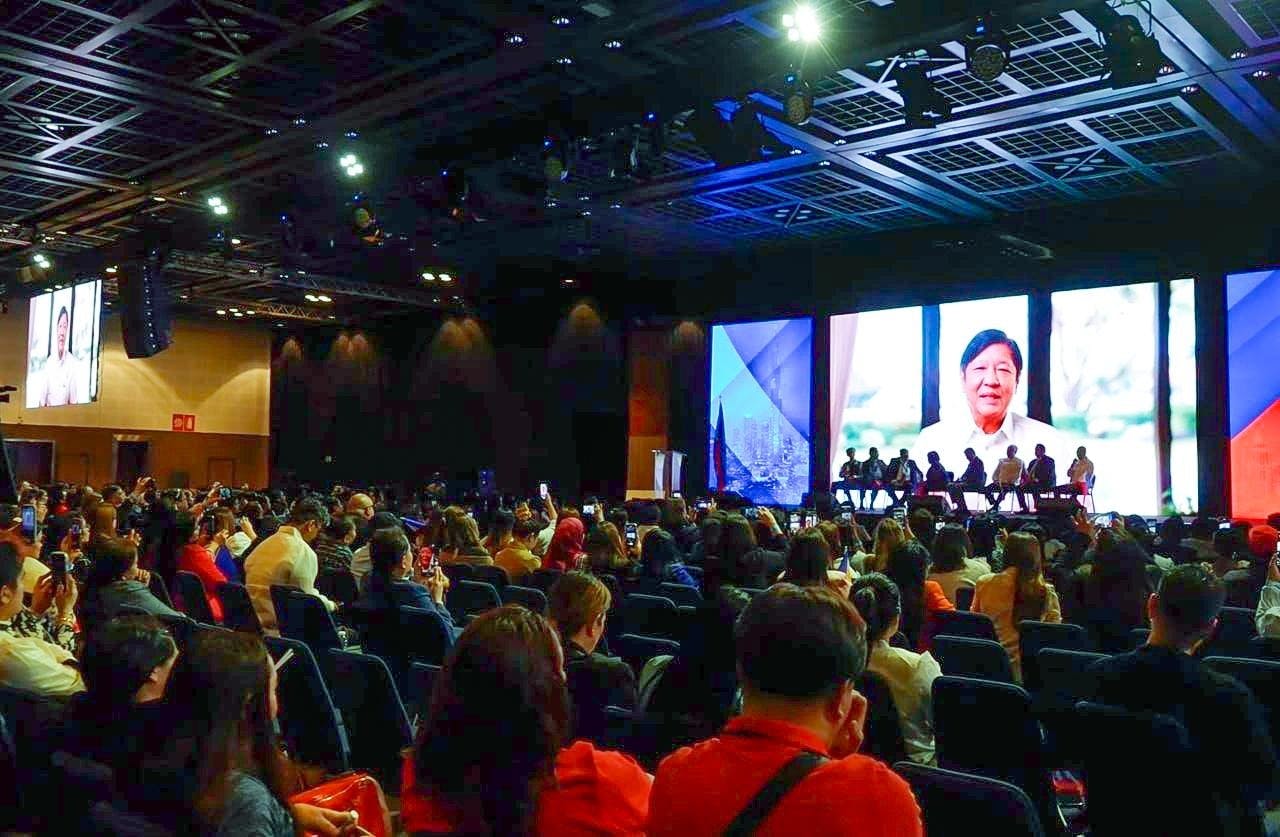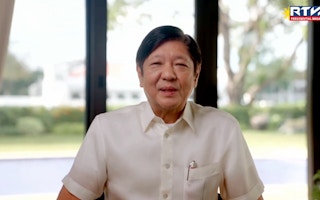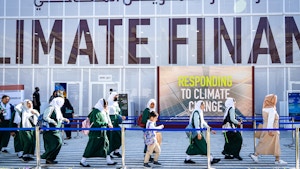Philippine president Ferdinand Marcos, Jr made a last-minute decision to cancel his trip to Dubai to attend the world’s most important climate summit, disappointing some conference observers who called it a “missed opportunity”.
The COP28 climate conference kicked off in Dubai on Thursday, and world leaders and climate negotiators are expected to discuss and decide on critical measures needed to address climate change in the next two weeks.
It has been eight years since a Philippine head of state participated in person at the climate summit. Former president Benigno Aquino III joined world leaders in 2015 at COP21, where the landmark Paris Agreement was drafted.
Up until Wednesday, Marcos, Jr had said that he will be attending the summit in Dubai and using it as a platform to remind nations of their climate change commitments, especially in climate financing. But in a social media post hours before the crucial meeting, Marcos, Jr said that he was going to focus instead on the hostage-taking situation involving 17 Filipino seafarers in the Red Sea.
Rodne Galicha, executive director of Living Laudato Si Philippines, an environmental advocacy group affiliated with the Catholic Church, acknowledges the seriousness of the hostage situation, but said the ongoing crisis off the coast of Yemen is not far from Dubai, where the president could still monitor the situation.
“The President’s attendance could have been a strategic platform to sustain the government’s priority stance for climate action and urgent call for climate justice,” Galicha told Eco-Business. “His absence would become a challenge for the Philippine delegation to be firm in laying down positions for the best interest of the Filipino people.”

Members of the Filipino community in Dubai listen to a recorded message from Philippine president Ferdinand Marcos, Jr on 30 November. Filpinos gathered to welcome Marcos, Jr but instead met his representatives, led by environment secretary Ma Antonia Yulo-Loyzaga. Image: Presidential Communications Office
Ian Fry, United Nations special rapporteur on climate change and human rights, said he understands the reasons for the President’s absence but said that having a head of state at a COP “always makes a difference”.
Fry was in the Philippines in November for a 10-day visit to observe issues on human rights in the context of climate change in the country. Prior to his role, he was a climate negotiator for Tuvalu for more than 20 years. He is currently in Dubai as an advisor to youth delegates.
“President Marcos’ attendance and delivery of the country position at the COP is a strong signal to the rest of the world that the Philippines is very concerned about the impacts of climate change and that urgent action is required at the highest level of government,” Fry told Eco-Business.
The climate conference usually starts with a high level segment where heads of states present their country’s statement on climate change. The President was expected to assert the need for a framework for the loss and damage fund, fast track the energy transition, and prioritise resilient food systems.
He has instead entrusted the country statement to environment secretary Ma. Antonia Yulo-Loyzaga who will deliver it on 1 December.
Last year, Philippine ambassador to Egypt Ezzedin Tago communicated the country position at the high-level ministerial dialogue on climate finance at COP27. The year before, then-finance secretary Carlos Dominguez made the national statement in Glasgow.
Tony La Viña, a former lead climate negotiator for the Philippines and a veteran adviser of previous delegations, who spoke to Eco-Business before Marcos had changed his mind about attending COP, said the president’s attendance would be “huge”, particularly if it was held in contrast to how his predecessor, former President Rodrigo Duterte pushed climate issues to the sidelines.
Duterte, in the first year of his presidency, threatened to pull out of the Paris climate change agreement but was eventually persuaded by his government officials to stay in the deal. He also frowned at climate conferences, calling them a “waste of time and money.”
Want more Philippines ESG and sustainability news and views? Subscribe to our Eco-Business Philippines newsletter here.





















